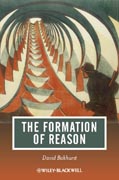
INDICE: Acknowledgements. Author's Preface. Chapter One: What Can Philosophy Tell Us About How History Made the Mind? What Role for Philosophy? Wittgenstein and Davidson. Wittgenstein and Davidson Contrasted. McDowell. The Idea of Bildung. Understanding the Bildungsprozess. The Conceptual and the Practical. Conclusion. Chapter Two: Social Constructionism. Social Constructionism Introduced. The Social Construction of Reality. Why Bother About Global Constructionism? Against Global Constructionism. Matters Political. The Social Construction of Mental States. Mental States as Theoretical Constructs. Meaning and Mental Content. Why Mental States Are Not Socially Constructed. The Social Construction of Psychological Categories. Conclusion. Chapter Three: Self and Other. Problems of Self and Other. The Problem of Self and Other in One's Own Person. Strawson on Persons. Wiggins on Persons and Human Nature. The Significance of Second Nature. Further Positives. Conclusion: Two Cautionary Notes. Chapter Four: Freedom, Reflection, and the Sources of Normativity. McDowell on Judgement. Owens' Critique. Defending Intellectual Freedom. Freedom and the Sources of Normativity. Sources of Normativity I: Practical Reasoning. Sources of Normativity II: Theoretical Reasoning. A McDowellian Response. Conclusion Chapter Five: Exploring the Space of Reasons. McDowell on the Space of Reasons. Brandom'sInferentialism. Ilyenkov on the Ideal. Conclusion Chapter Six: Living Within Reason: Music, Mood, and Education. An Initial Response. The Challenge Reconfigured. Passivity within Reason. Mood. Mood, Salience, and Shape. Music. Education. Conclusion. Chapter Seven: Education Makes Us What We Are. A Residual Individualism. Vygotsky's Legacy. Reconciling Vygotsky and McDowell. Personalism.Final Thoughts on Education.
- ISBN: 978-1-4443-3909-3
- Editorial: Wiley-Blackwell
- Encuadernacion: Rústica
- Páginas: 200
- Fecha Publicación: 25/03/2011
- Nº Volúmenes: 1
- Idioma: Inglés
